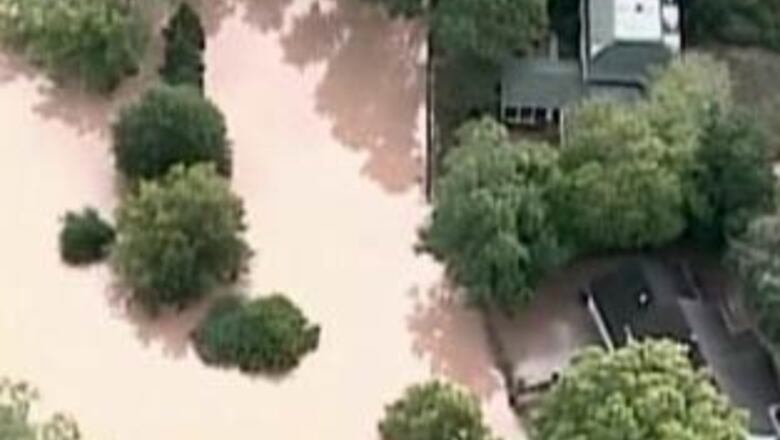
views
Atlanta: Severe flooding in north Georgia has killed seven people, submerged homes, knocked out power and turned streams into rivers while refilling reservoirs after a lengthy drought in the southeastern United States.
Governor Sonny Perdue asked US President Barack Obama on Tuesday to declare a state of emergency for Georgia because of the flooding, which a state climatologist said was the worst in 100 years in some parts of Atlanta.
Days of heavy rain swelled the Chattahoochee River to overflowing and in some places turned creeks that trickle through the city's residential neighborhoods into raging torrents at least 15 feet (5 meters) above normal levels. Some places saw as much as 15 inches (38 cm) of rain over three days.
The deaths included a toddler ripped from his mother's arms when their mobile home was swept into a creek and a woman drowned in her vehicle while she was on the phone to emergency services pleading for help, local media reported.
It is too early to estimate the cost of damage to infrastructure, though some bridges are down, around 1,000 homes are flooded and 30,000 people are without power, state officials said, citing aerial photographs and initial reports.
Some interstate highways through Atlanta were also closed.
“We are still very much in response mode,'” said spokeswoman for Georgia Emergency Management Agency, Dena Brummer, more than 18 hours after the rain stopped across most of the state.
“Safety is our number one priority. We have seen an increase in road rescue today (Tuesday) rather than yesterday (Monday) because people are still taking their chances in navigating through flooded roads,” Brummer said.
Drought-stricken Lake Lanier, which stands near the head of a water table that serves Atlanta and parts of Georgia, Alabama and Florida, rose three feet in the recent rain.
Two years ago the lake was at record low levels but now it stands just three to four feet below the 1,071 feet above sea level considered its full level during the summer, said Lisa Coghlan of the US Army Corps of Engineers in Mobile, Alabama.
At the height of a drought in November 2007 the lake's level fell to 1,052 feet (320 metres), Coghlan said.














Comments
0 comment